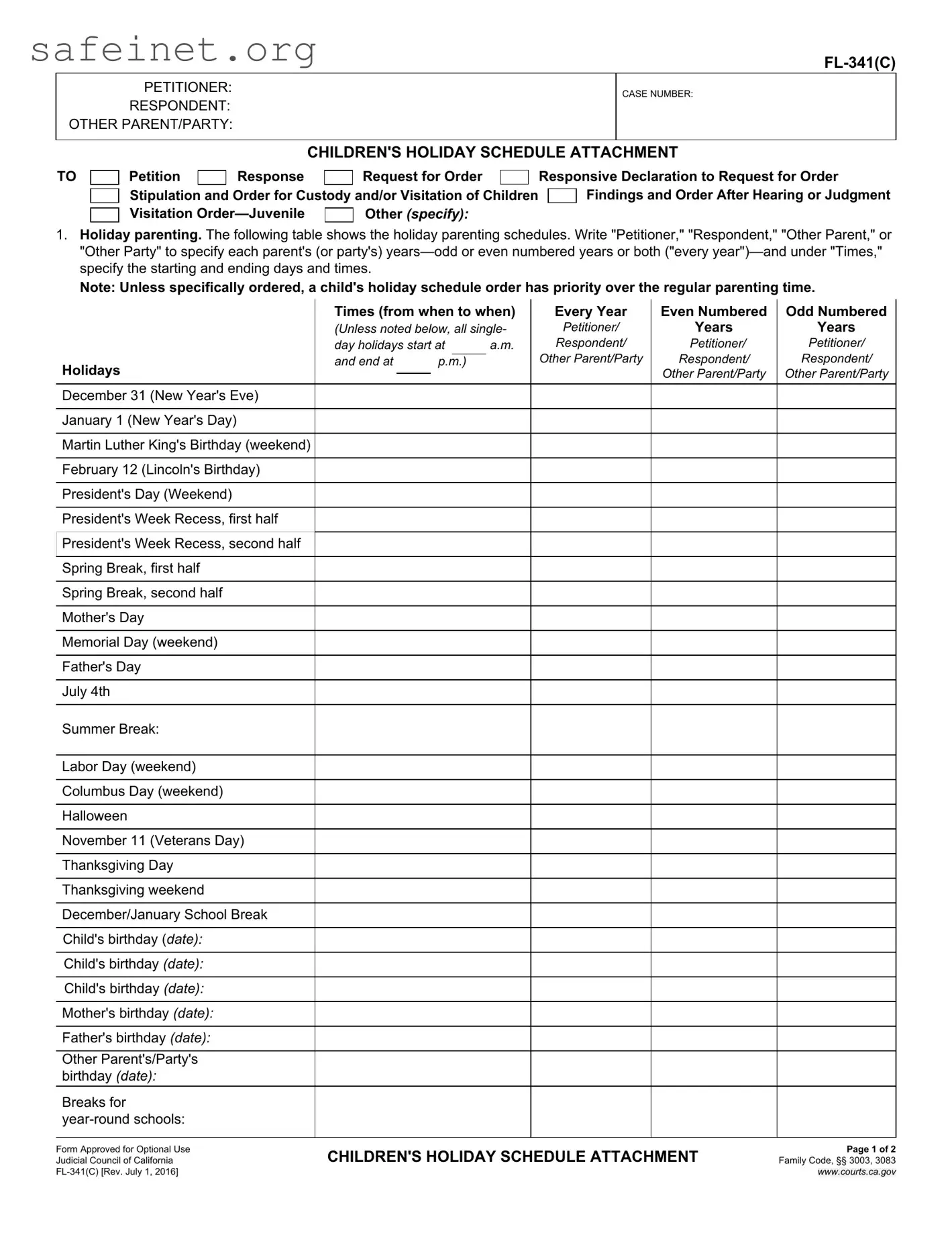What is the FL-341C form used for?
The FL-341C form, also known as the Children’s Holiday Schedule Attachment, is used in family law cases to outline the holiday parenting schedule for children. It allows parents or parties involved in custody disputes to specify how custody will be shared during holidays and other important dates.
Who needs to fill out the FL-341C form?
This form must be filled out by the Petitioner, Respondent, or any Other Parent/Party involved in the custody arrangement. It ensures all parties are on the same page regarding holiday scheduling and personal celebrations.
How do I specify holiday parenting schedules on the form?
The form includes tables where you can indicate holiday parenting schedules. You must specify whether the Petitioner, Respondent, or Other Parent will have the children on certain holidays and note whether those holidays fall on odd or even numbered years. For each holiday, provide the start and end times for custody.
What happens if there is a disagreement about the holiday schedule?
If parents cannot agree on the holiday schedule, they are required to confer and attempt to resolve disagreements before seeking a court hearing. The form allows parties to specify whose suggestions they will follow in even or odd-numbered years to resolve such issues.
What requirements are there for vacations outlined in the FL-341C form?
Parents must specify how many days or weeks they can take the children on vacation each year. They are also required to notify the other parent of vacation plans at least a certain number of days in advance and provide a basic itinerary that includes crucial details like destinations and emergency contacts.
Can vacations occur outside of California?
Yes, vacations can take place outside California or even the United States. However, prior written consent from the other parent is mandatory, or a court order must be obtained if consent cannot be reached.
How are school breaks and holidays managed in the FL-341C form?
The form allows parents to outline parenting schedules for various holidays and school breaks. Each holiday's timing needs to be clearly indicated, ensuring that both parents are aware of their responsibilities during these periods. It is crucial to refer to the provided structure on the form to meet these needs.
Is this form required for all custody cases?
No, the FL-341C form is not required for every custody case. It is specifically for situations where parties wish to formalize and clarify holiday schedules. If there are no disputes regarding holiday parenting, filling out this form may not be necessary.


